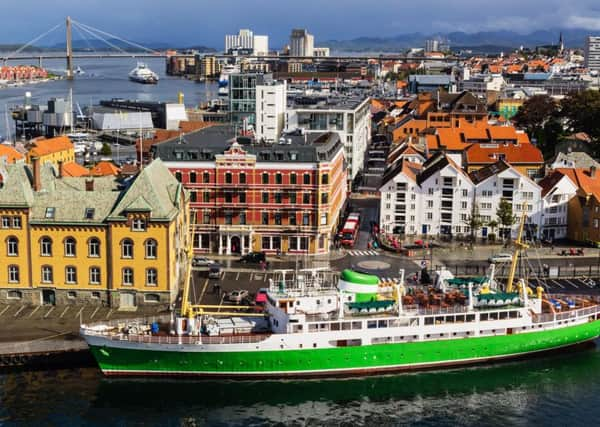Catherine Stihler: Why Labour should vote for 'Norway option'


Norway is not a member of the European Union, and never has been, but it is a member of the European Free Trade Association. That means it can be – and is – a member of the Single Market, and part of the European Economic Area (EEA) which provides for the free movement of people, goods, services and capital.
The Commons vote that Theresa May has been forced to call is the direct result of Labour pressure in the Lords, and it means a softer Brexit is now a realistic option for the UK.
Advertisement
Hide AdAdvertisement
Hide AdLast week, I visited Stavanger in Norway as part of a delegation from the EEA joint parliamentary committee. MEPs and national parliamentarians from Iceland, Norway and Liechtenstein, with Swiss MPs as observers, debated issues from the EEA agreement itself to cybersecurity and the energy package. We also debated the impact of Brexit on the EEA because, as things stand, the UK is not only leaving the EU but the EEA as well. This has implications for EEA citizens’ rights just as it has for EU citizens’ rights.
Let’s be clear: the model is far from perfect. Norway does not have a direct role in EU decision-making, and the same would be the case for the UK if it remains in the EEA. The Norwegians explained to us we would become a fellow “lobby nation”, sitting across the table from our European allies, not alongside them.
That’s why my preference would be to remain in the EU – and it’s why I back a People’s Vote on the deal that Theresa May eventually puts before us.
But, if we are to leave the EU, then it’s vital that we take the least-worst option for our economy to protect as many jobs here in the UK as we can. The freedom to move goods and services across the EU and EEA are key components of the Single Market, which 80,000 jobs in Scotland depend upon. A large part of the growth in trade has been due to the harmonisation of rules and standards across Europe.
So while Norway and other EEA countries do not have a final, formal vote on new laws, they are still consulted on new EU rules and participate in shaping legislation, can refer the union’s laws to their own parliaments when constitutional issues arise and can adapt legislation to an extent, and can even refuse to incorporate EU law if they want. I will never forget attending the Norwegian Labour Party Congress in 2011 where they rejected the proposed postal services directive which guarantees a quality and affordable “universal” postal service.
National economies are so intertwined nowadays that, even after Brexit, most large British companies will adhere to EU rules and regulations in order to sell into the UK’s largest and most valuable export market.
So the question arises: is formal autonomy over decision-making on standards really worth the risk to our economy of leaving the Single Market?
I don’t think so, and that’s why I hope MPs will seize the opportunity before them when a vote on EEA membership comes to the Commons.
Advertisement
Hide AdAdvertisement
Hide AdWe know where the LibDems and the SNP stand, and we know there are enough Tory rebels to defeat the Prime Minister if the Labour front bench wants to.
We can’t simply keep promising to negotiate a “bespoke deal”. We are in opposition, and it’s time to stop pretending otherwise.
When the vote comes to the Commons it will be a binary choice: Theresa May’s hard Brexit or a softer Brexit – a Norway-style option – to protect jobs.
If we let the Prime Minister win; if we are willing to sacrifice so many workers; we don’t deserve to call ourselves the Labour Party.
Catherine Stihler is Labour MEP for Scotland